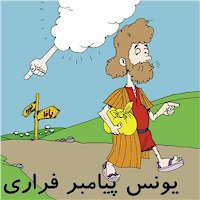Prophetic voices
The prophets are one of the most extraordinary experiences in the religious and cultural history of the People of Israel. The prophets were people with a deep experience of God, who felt being called by God and sent by him to the people. They were totally committed to the mission of upholding God’s place and rights in the middle of the people. With courage, they denounced policies, teachings, customs and attitudes, which they consider as betrayal of the Covenant with God; and they were bold enough to challenge the people and their leaders, calling them to change direction (conversion) and to allow themselves to be guided by God’s word and God’s values. They interpreted the great events that made the history of the people, giving meaning to them. In spite of sometimes using angry and harsh words, their message is full of hope, as they give guidance and encouragement to the people.
The prophets shaped the religious life of the people, deepening their understanding of God and of his place in human history. We must remember that their message was always full of political and social implications.
Through Moses, God promised to send prophets who, moved by a inner urgency, would speak out and give guidance to the people. Throughout human history, in all cultures and civilisations, God has always raised men and women who speak God’s own message. Their voice is a challenging voice. We must listen to them, as they call us to be our true selves, by allowing God to be God in our lives.
Be aware of false prophets
Moses promise comes with a warning: there are false prophets who communicate their own message instead of God’s message and who lead people astray with words that sound very appealing.
We need to scrutinise them, listening to the different messages being addressed to us with a discerning mind. Be aware of sweet words and easy promises. The way of truth and faithfulness was never an easy one – and that is the way that takes us to happiness (to true life and salvation).


